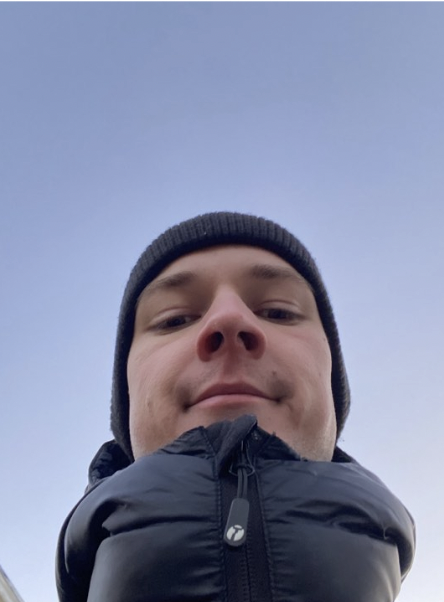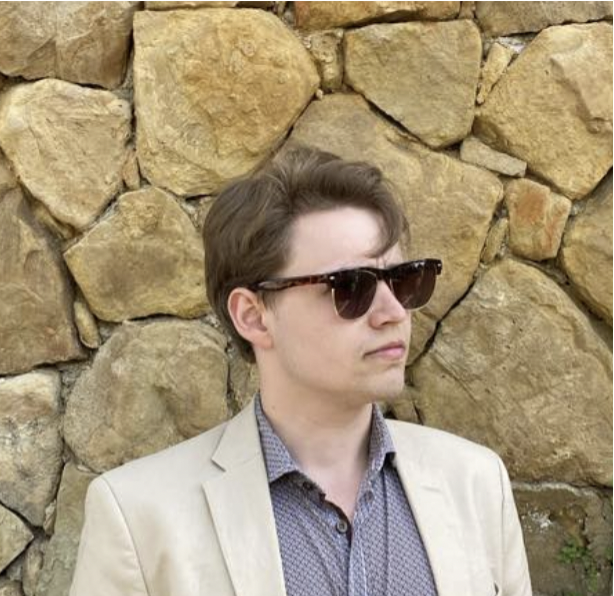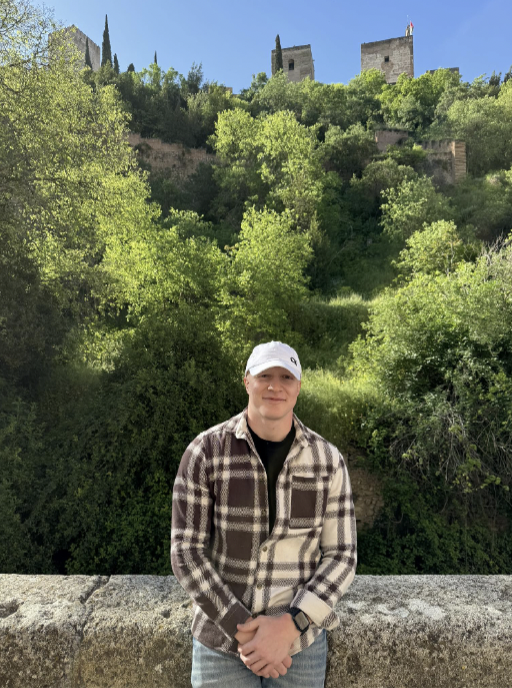Question 1:
Reflect on your experience in Benalmadena: Can you share a highlight or a particularly
impactful moment from your time in Benalmadena participating in the project “E-Comm Youth Boost”? What made this moment stand out for you? (e.g. peer learning among participants, discussions, specific activities, intercultural experience, EU values that help you to break stereotypes among countries).
Raven Õun: It was a fantastic time with people from around the world. It called
together a group subject interested and different backgrounded persons. The
participants ranged in age and experience, eventually somewhat equalising their skill
and knowledge. From the participant’s perspective, the learning was exciting. The
training was performed so that the participants were always active: icebreaker games
were organised often outside or involving physical activity followed by brainstorming
project mocks or other mental activity regarding the subject. A highlight of this as a
value can be an example of the final day’ main activity in which participants were
divided into teams, each having their own business plan to present.
Iljas Abubakarov: A particularly impactful moment during the “E-Comm Youth Boost”
project in Benalmadena was a collaborative workshop where participants from diverse
backgrounds worked together to create a sustainable e-commerce business model.
This activity stood out because it showcased the power of peer learning and
intercultural exchange. Seeing participants share ideas and solutions, transcending
cultural differences, was truly inspiring. The discussions emphasized EU values of
cooperation, sustainability, and inclusivity, helping to break stereotypes and build
mutual respect among countries. This experience reinforced the importance of teamwork and the integration of ethical practices in e-commerce, leaving a lasting
impression on my approach to youth engagement.
Question 2:
Learning and growth: Throughout the project, what was the most significant learning
experience for you, especially in terms of integrating e-commerce into youth engagement? How has this experience influenced your approach to youth work? (e.g. insights gained from
non-formal learning methods, personal growth moments during the training, or understanding
the importance of sustainable, EU values and ethical practices in e-commerce and digital entrepreneurship).
Markus Meier: The gained learning experience was extremely beneficial as it covered a
wide variety of skills from e-commerce to informal learning. The fundamental basis for
future youth work is cooperation and teamwork, which takes participants out of their
comfort zone, forcing them to put their differences aside and work for the common
goal. I personally was very surprised to see that different work cultures can be
synthesised into one very effective one. Another aspect I would highlight is that this
project was an ultimate and tangible portrayal of EU values. The topics put forward
were related to environmental sustainability, the cooperation flourished cultural
diversity and solutions to the problems required IT-approach. Thus, I think the
combination of these very different fields in very different way was a bit eye-opening
experience for me.
Iljas Abubakarov: The most significant learning experience for me was integrating e-
commerce into youth engagement, demonstrating how digital tools can effectively
foster entrepreneurial skills among young people. This experience underscored the
value of non-formal learning methods, such as interactive workshops and project-
based activities, in making e-commerce both accessible and engaging. A key personal
growth moment was witnessing how diverse work cultures could be harmonized into a cohesive and productive team. The project highlighted the importance of sustainable
and ethical practices in e-commerce, reflecting core EU values. This has profoundly
influenced my approach to youth work, leading me to prioritise digital literacy,
sustainability, and inclusivity in all our programs, ensuring that they are not only
educational but also aligned with ethical standards and cultural diversity.
Question 3:
Looking forward: Based on your experiences and the non-formal skills you’ve acquired during the project in Benalmadena, how do you plan to apply what you’ve learned on Erasmus+ and e-commerce to future initiatives or your professional practice? Are there any specific
strategies or insights that you plan to incorporate into your work with diverse youth groups (e.g. utilizing new non-formal methods to enhance accessibility and inclusivity within your organisation)?
Iljas Abubakarov: During the project in Benalmadena, I acquired several non-formal
skills, including effective communication, intercultural competence, and digital literacy.
I plan to apply these skills to future initiatives, particularly in the fields of Erasmus+ and
e-commerce. By utilizing interactive techniques such as digital storytelling and
gamification, I can engage diverse youth groups more effectively. I also aim to foster
cross-cultural understanding through workshops that emphasize collaboration and
empathy. Additionally, I’ll incorporate practical e-commerce projects that teach
entrepreneurial skills, ensuring that our programs are inclusive, accessible, and
impactful for all participants.


